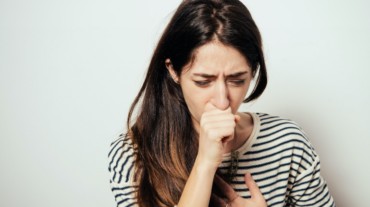
Feeling feverish these days means instant panic. And why not? Mild fever is touted to be the first and foremost sign of covid-19 and no one wants to take their chances on that.
But before you go bonkers because you have a fever, know that covid-19 also demands other parameters. And that mild fever could have entered your life because of changing weather, foul food, exertion, and even anxiety.
To know exactly what happens in the body when you get a fever, we’ve got for you this foolproof guide.
First, let’s understand why you might be getting that fever right now
According to Dr Vikrant Shah, intensivist and infectious disease specialist at Zen Multispeciality Hospital, Mumbai, monsoon is the season for illness as the air is humid and perfect for the spread of virus and bacteria.

He says: “During this time we need to be more cautious due to covid-19. Apart from that waterborne disease is another problem that prevails which can lead to fever. Viral fever which you can get from contaminated water can also be the cause of concern as it can lead to viral hepatitis. Therefore it is always advised to avoid water logging around you and avoid eating out.”
This is how you should access the situation
Rise in temperature is not the only symptom that you need to look out for. Call a doctor if you also have the following symptoms:
Another thing that you need to keep in mind is that most people have a baseline temperature of 98.6°F (37°C). Having said that, some people might have a baseline that’s slightly higher or lower. Also, daily temperature fluctuations are normal. So, there is no need to panic if you see a minor temperature hike.

This is how you can check whether you have viral or covid-19
“Well, this is tricky terrain because when it comes to covid-19 we have seen changing scenarios in the case of symptoms. But nevertheless, you needs to look out for certain things before panicking about covid-19,” he says.
According to Dr Shah if you have low-grade fever without any other symptoms then there is nothing to worry about. “You can just take a Paracetamol and if you recover the very next day then you’re fine,” he says
“But if along with fever you have a cough, throat pain, loss of taste, incredible tiredness that you can’t even walk properly then there might be chances that you are struck by the covid-19 virus,” he says.
Select Topics of your interest and let us customize your feed.
PERSONALISE NOW
He also advocates that during monsoon there are chances of diseases like dengue and malaria which can also lead to a fever. So getting the relevant tests done if you fever persists, after consulting with your doctor, is a must.
Here’s how you can manage that fever
According to the doctor, taking your temperature is the one thing that you need to do religiously. Taking proper rest and fluids is also recommended to bring that fever down.
Concludes, Dr Shah:
I will only recommend you to take paracetamol or ibuprofen if your temperature is more than 100°F. If it is below then there is no need to pop a pill.
Fever trauma is real but you can tackle it better as now you have this guide handy. So, follow the rule book and don’t panic.